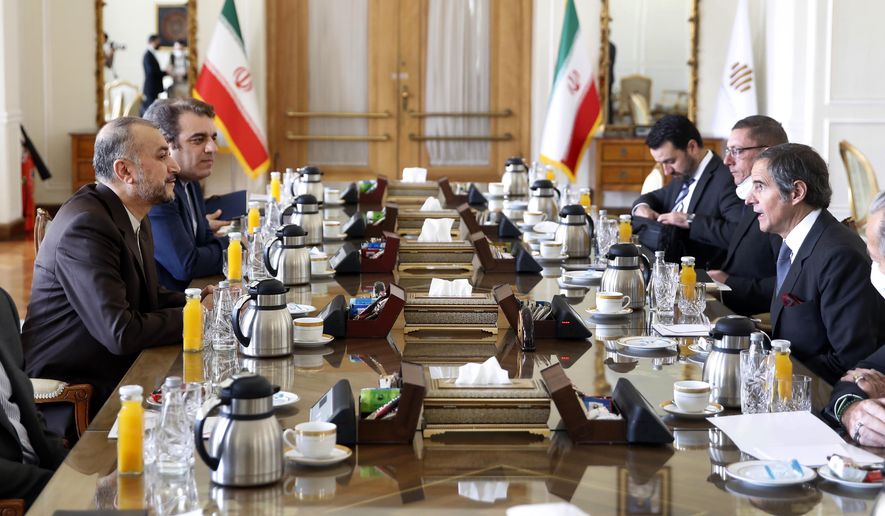White House press secretary Jen Psaki said Thursday U.S. negotiators are nearing a deal to revive the 2015 nuclear pact between Iran and world powers that was repudiated by President Trump in 2018.
Diplomats from Iran, the U.S. and five other countries have been negotiating for months in Vienna over a deal to re-establish curbs on Tehran’s nuclear programs in exchange for lifting punishing economic sanctions re-imposed by Mr. Trump after Washington left the agreement. Citing the U.S. withdrawal, Iran has been aggressively violating limits on uranium enrichment and other programs set in the 2015 agreement.
“Our view is that we are close,” Ms. Psaki said. “We have been close for some time now. We also know from having been through these negotiations before that the end of the negotiations is always when the difficult and challenging parts of the conversation typically take place.”
Ms. Psaki’s comments come just hours after French officials said the window to strike a deal is shrinking. The U.S. and its European allies say they will not tolerate indefinite stalling by Iran in the bid to revive the tattered agreement.
“We are very close to an agreement but the window of opportunity is closing,” Foreign Ministry spokeswoman Anne-Claire Legendre told reporters.
The Biden administration had hoped to reach a deal by the end of February. The nuclear deal was a major foreign policy breakthrough for the Obama administration, with Mr. Biden supporting the deal as vice president.
SEE ALSO: Dissident group to Biden: Trump was right to list Iran’s IRGC as terrorist organization
Analysts are split on the deal’s effectiveness. Many Democratic and Republican lawmakers in Congress say Iran cannot be trusted and the deal does not limit other aspects of Tehran’s hostile foreign policy, including backing for anti-American groups across the Middle East. Israel, a key American ally in the region, has also fiercely opposed the deal, as have Sunni Arab U.S. allies such as Saudi Arabia.
But supporters say rejoining the agreement will give Washington leverage to roll back Iran’s drive for nuclear weapons and open the way for progress on other issues. Mr. Biden and his aides say that without a deal, Iran would be free to pursue nuclear weapons and that Mr. Trump’s program of “maximum pressure” and sanctions failed to deter Iran’s hard-line leadership.
Iran denies it is seeking a nuclear weapon and insists its nuclear programs are meant for civilian power needs. Iran’s state-controlled Tasnim news agency said Thursday there were still a handful of issues still to be resolved in the Vienna talks, including Iran’s demand for guarantees that U.S. and Western economic sanctions will not be re-imposed by a future administration. Mr. Biden faces considerable opposition — including from some top Democrats in Congress — to striking a new deal with Iran.
Russia is a key member of the Vienna talks, which have gone on despite the sharp break in relations with the West following the Kremlin’s decision last month to invade Ukraine.
• Jeff Mordock can be reached at jmordock@washingtontimes.com.




Please read our comment policy before commenting.